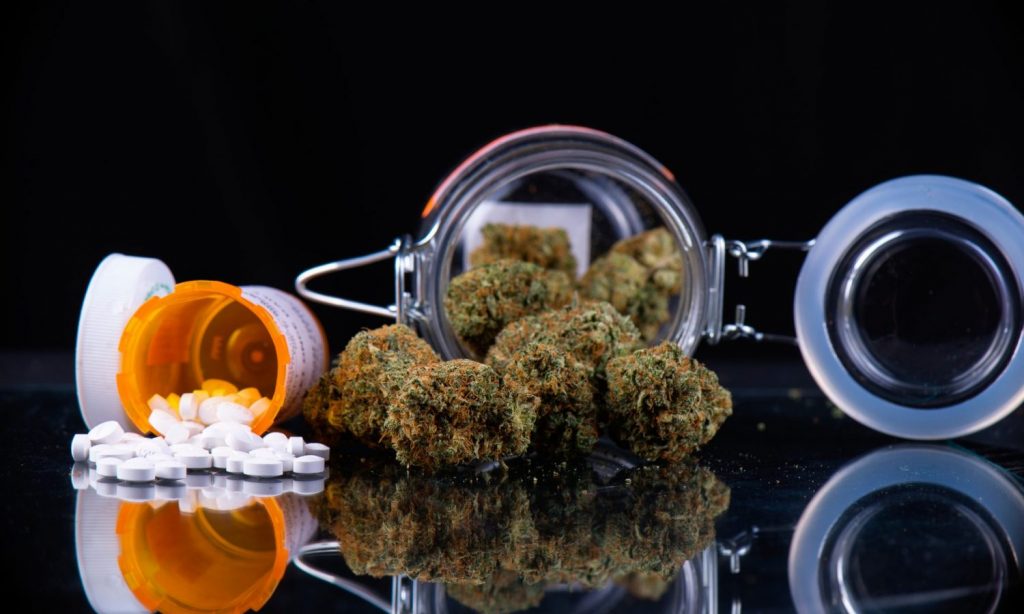
What is CBG and how does it fight antibiotic resistance?
One of the most pervasive human threats that has become a global health challenge is drug-resistant infections. This threat increases fears that our generation is very likely to return to the pre-antibiotic age, as such diseases are life-threatening.
Over 700,000 people die each year from drug-resistant infections. This number is increasing every day and has led scientists and researchers to search for new antibiotics that fight super bacteria.
Photo by Bacsica / Getty Images
What is cannabigerol?
Cannabigerol (CBG) is a form of cannabinoid from cannabis plants and is often referred to as the “mother” of all cannabinoids. Cannabigerol holds an exceptional place in the hearts of cannabis researchers and users as other cannabinoids are derived from its acidity.
CBG is also found in the cannabis plant in lower amounts than other cannabinoids, as in most plant varieties; You will find 1% CBD as opposed to the 20-30% THC in the plant.
As a result, CBG products are rare and very expensive. Researchers have found that CBG offers many benefits to the medical world, which has increased its popularity.
What are antibiotics?
Antibiotics are drugs designed to prevent and cure bacterial infections, thereby saving people from death if the infection spreads without a cure. But antibiotics are also at great risk due to the availability of different types of antibiotic-resistant bacteria.
These bacteria, which overcome the effects of even the strongest antibiotic, are a problem that has caused the pharmaceutical industry to stagnate with the development of new antibiotics. In addition to climate change, the antibiotic resistance crisis is also seen as a global threat.
How can cannabigerol help?
When researchers pioneered a solution to this threat, it was discovered that natural ingredients in cannabis could offer a solution to the crisis. According to a recent study, cannabigerol was identified as a chemical found in the cannabis plant that can kill stubborn bacteria.
The antibacterial activities of cannabinoids (which are chemicals in cannabis) suppress and fight this group of bacteria effectively.
RELATED: What Is CBG and Is It Legal?
The research of the two MacMaster microbiologists Dr. Omar El-Halfawy and Dr. Maya Farha show that scientists need to rethink new ways of discovering the next antibiotic. With all the focus on cannabigerol, it is obvious that the future belongs to this cannabinoid.

The cannabinoid is also an attractive research area with enormous potential for long-term solutions to this crisis. Therefore, academics hope that their discovery will spark more antimicrobial research into the possibilities of cannabinoids.
CBG has been shown to be effective in killing normal bacterial cells as well as other persistence cells that have shown excellent antibiotic resistance. CBG was also effective in preventing and destroying biofilms that cause buildup on the person’s skin.
RELATED: What to Know About the Healing Benefits of CBG. need to know about marijuana
Although these test results are preliminary, there is very high potential for additional knowledge and further study; a powerful solution can come from CBG.
The power of cannabigerol in the cannabis plant.
For decades, researchers have agreed that cannabinoids, especially cannabigerol, have antibacterial properties. For example, cannabis extracts have been used as antiseptics in many parts of the world since the 1950s. This finding confirms the fact that cannabinoids still have a lot of untapped potential for antimicrobial development.
The active properties of cannabinoids are also helpful in the human body, which makes them a good starting point for the development of new antibiotics. The McMaster University team tested 18 strains of cannabinoids and other related molecules against several antibiotic-resistant superbacteria.

The bacteria tested also included gram positive bacteria and gram negative bacteria. Well, scientists discovered that cannabigerol showed great promise as an antibacterial agent.
The researchers also collected various antibiotic-resistant bacteria from local hospitals to see if the cannabinoids killed the bacteria. During their experiments, they immediately recognized that CBG had a unique and extraordinary antibacterial effect against other groups of bacteria.
Their discovery also showed that CBG is a non-psychoactive and non-sedative chemical that is great for developing antibiotics for both animals and humans. Interestingly, unlike other cannabinoids like THC, you can’t get high on CBG.
RELATED: MRSA and Cannabis: What’s the Link?
So a combination of significant chemical compounds and the inability to get high makes cannabigerol the perfect candidate for a solution to this global health crisis. Since CBG healed MRSA infected mice with no toxic side effects, this means that it has high potential for humans.
Scientists also discovered that within 30 minutes of treatment in mice, CBG stopped bacterial growth and killed any MRSA bacteria that are tolerant of topical antibiotics like ciprofloxacin. In addition, CBG has also been tested against the most brutal of gram negative bacteria.

Many antibiotics are ineffective against gram-negative bacteria such as E. coli because the antibiotic cannot penetrate the bacterial cell. CBG “alone” couldn’t kill E. coli, but when maximized in combination with another antibiotic (such as a polymyxin B), the E. coli membrane becomes easily penetrable.
With the penetration, CBG gets into the E. coli and kills the bacterium!
Yes, the cannabis plant brought us a miracle through cannabigerol, and so many health professionals are excited to see the breakthroughs this will bring on a global scale. However, it will take some time to become commercially available as it has to go through rigorous CBG safety testing and preclinical development studies.
Bottom line
The world is still in a period of awakening to the possibilities cannabis offers. So much has been discovered with cannabis so far and much more can be done as scientists and researchers continue to ask questions and test the cannabis plant.
The threat of antibiotic resistance is one of the many global health challenges that the chemical compound in the cannabis plant will solve. The potent cannabinoid cannabigerol has been shown to contain antibacterial properties that can effectively fight the global threat.
Nobody knows exactly what the future holds, but one thing is certain: cannabis and its cannabinoids will be a big part of it.
This article originally appeared on Cannabis.net and was republished with permission.

Post a comment: